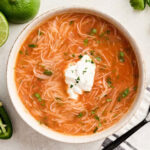Here are 7 nutritious foods that are also high in cholesterol.
1. Eggs
Eggs are among the most nutrient-dense foods available, particularly known as an excellent source of protein. They are also notably high in cholesterol. A single large egg (approximately 50 grams) contains about 207 milligrams of cholesterol.
Despite their high cholesterol content, research indicates that eggs may not adversely affect cholesterol levels in the body. In fact, consuming whole eggs might actually boost high-density lipoprotein (HDL) cholesterol, often referred to as “good” cholesterol, which is beneficial for heart health. While some studies suggest a potential increase in low-density lipoprotein (LDL) cholesterol, known as “bad” cholesterol, with higher egg consumption, it’s generally considered safe for healthy individuals to eat 1–2 eggs per day.
2. Cheese
Cheese, especially varieties like Swiss cheese, is another food that contains a significant amount of cholesterol. A single slice (22 grams) of Swiss cheese provides approximately 20 mg of cholesterol. Beyond cholesterol, cheese is a valuable source of calcium and other essential nutrients.
Interestingly, a 12-week study involving 139 participants found that consuming a relatively high amount of full-fat cheese, around 3 ounces (80 grams) daily, did not lead to an increase in LDL cholesterol levels when compared to consuming the same amount of low-fat cheese or an equivalent caloric intake from bread and jam. This suggests that the impact of cheese on cholesterol might be more nuanced than previously thought.
3. Shellfish
Shellfish, including delicious options like clams, crab, and shrimp, are not only culinary delights but also nutritional powerhouses. They are packed with protein, B vitamins, iron, and selenium. However, they are also relatively high in cholesterol. A 3-ounce (85-gram) serving of canned shrimp contains about 214 mg of cholesterol.
Despite their cholesterol content, research suggests that incorporating more seafood, including shellfish, into your diet may have positive health outcomes. Studies have linked seafood consumption to improved cognitive function, visual acuity, and cardiovascular health, highlighting the benefits of shellfish beyond just their cholesterol levels.
4. Pasture-Raised Steak
Pasture-raised steak is a protein-rich food that is loaded with essential vitamins and minerals. Compared to feedlot beef, pasture-raised steak is lower in cholesterol and boasts a significantly higher content of omega-3 fatty acids, which are known for their anti-inflammatory properties and numerous health benefits. A 4-ounce (113-gram) serving of pasture-raised steak contains approximately 62 mg of cholesterol.
Choosing pasture-raised steak can be a healthier option if you are mindful of cholesterol intake but still want to enjoy red meat. The presence of omega-3 fatty acids adds an extra layer of nutritional value to this type of steak.
5. Organ Meats
Organ meats, such as heart, kidney, and liver, are among the most cholesterol-rich foods you can consume. However, they are also incredibly nutrient-dense. For instance, chicken heart is an exceptional source of CoQ10, a potent antioxidant, as well as vitamin B12, iron, and zinc. A 1-cup (145-gram) serving of chicken heart provides a substantial 351 mg of cholesterol.
A 2017 study involving over 9,000 Korean adults revealed that those with a moderate intake of unprocessed meat, including organ meats, had a lower risk of developing heart disease compared to those with the lowest consumption. This suggests that in moderation, organ meats can be part of a heart-healthy diet, despite their high cholesterol content.
6. Sardines
Sardines are small, oily fish that are packed with nutrients and serve as a convenient protein source. A 3.75-ounce (92-gram) serving of sardines contains 131 mg of cholesterol. Beyond cholesterol, sardines are incredibly rich in other vital nutrients. A single serving provides 63% of the Daily Value for vitamin D, 137% of the DV for vitamin B12, and 35% of the DV for calcium.
The high nutrient density of sardines makes them a valuable addition to a healthy diet. They offer a good balance of cholesterol along with a wealth of vitamins and minerals essential for overall well-being.
7. Full-Fat Yogurt
Full-fat yogurt is a cholesterol-rich food that is also brimming with nutrients. One cup (245 grams) of full-fat yogurt contains approximately 31.8 mg of cholesterol. Furthermore, full-fat yogurt provides probiotics, calcium, and protein.
Research has associated increased consumption of full-fat fermented dairy products like yogurt with several positive health outcomes. These include reduced LDL cholesterol levels, lower blood pressure, and a decreased risk of stroke, heart disease, and type 2 diabetes. This indicates that full-fat yogurt can be a beneficial part of a balanced diet, contributing to heart health despite its cholesterol content.


